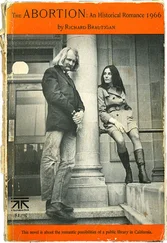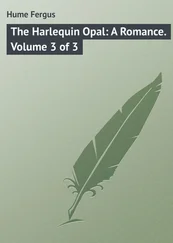Richard Dowling - The Last Call - A Romance (Vol. 3 of 3)
Здесь есть возможность читать онлайн «Richard Dowling - The Last Call - A Romance (Vol. 3 of 3)» — ознакомительный отрывок электронной книги совершенно бесплатно, а после прочтения отрывка купить полную версию. В некоторых случаях можно слушать аудио, скачать через торрент в формате fb2 и присутствует краткое содержание. Жанр: foreign_prose, на английском языке. Описание произведения, (предисловие) а так же отзывы посетителей доступны на портале библиотеки ЛибКат.
- Название:The Last Call: A Romance (Vol. 3 of 3)
- Автор:
- Жанр:
- Год:неизвестен
- ISBN:нет данных
- Рейтинг книги:5 / 5. Голосов: 1
-
Избранное:Добавить в избранное
- Отзывы:
-
Ваша оценка:
- 100
- 1
- 2
- 3
- 4
- 5
The Last Call: A Romance (Vol. 3 of 3): краткое содержание, описание и аннотация
Предлагаем к чтению аннотацию, описание, краткое содержание или предисловие (зависит от того, что написал сам автор книги «The Last Call: A Romance (Vol. 3 of 3)»). Если вы не нашли необходимую информацию о книге — напишите в комментариях, мы постараемся отыскать её.
The Last Call: A Romance (Vol. 3 of 3) — читать онлайн ознакомительный отрывок
Ниже представлен текст книги, разбитый по страницам. Система сохранения места последней прочитанной страницы, позволяет с удобством читать онлайн бесплатно книгу «The Last Call: A Romance (Vol. 3 of 3)», без необходимости каждый раз заново искать на чём Вы остановились. Поставьте закладку, и сможете в любой момент перейти на страницу, на которой закончили чтение.
Интервал:
Закладка:
Dowling Richard
The Last Call: A Romance (Vol. 3 of 3)
Part II. – Continued.
THE LAST CALL
CHAPTER IX
At half-past six a train left Rathclare for Dublin. The evenings were now cold and short. It was getting near winter, the end of autumn. As the train was about to start from the platform, a man with the collar of a large boat-cloak turned up about his ears, and a soft felt hat pressed low over his brows, stepped into an unoccupied first-class compartment, and took his seat. He did not speak to the guard who checked his ticket, nor had the guard any opportunity of seeing his face, as the man in the cloak kept his face carefully averted. He sat muffled up in the corner without moving, hour after hour, as the train sped on through the darkness. Every time the speed slackened and they drew near a station at which they were to stop, he shook himself slightly, straightened his hat down over his eyes, and pushed up the collar of his cloak. All the way from Rathclare to Dublin fortune favoured him, if he desired to be alone. For, although they stopped several times, and came to a junction where he had to change, he succeeded in making his journey in solitude. On three occasions the door of the compartment in which he sat had been opened, and a passenger was about to step in. On each occasion that passenger drew back, repelled by the motionless, dark figure, and by a sense of solitude surrounding that figure. Not one of the three passengers knew what it was which gave the air of this solitude, and yet each had felt that around that motionless figure were gloom and loneliness which startled and repelled. Yet the reason was very simple. Between that muffled form and the surrounding world there was no link, no band of union, however slight. There was an absolute figure, set in the absolute vacuity of the compartment. Beside, above, or beneath that figure was no article such as is usually seen by a traveller. No baggage of any kind; no stick; no umbrella; no newspaper; no rug; no book; no bag. Nothing but the bare figure and the bare compartment. Under that hat and cloak a form of terror or of danger might lie hidden, and it would not be pleasant to sit there, when practically beyond human aid, speculating on what that hat and that cloak hid. It would be still less pleasant if suddenly that cloak and that hat revealed what they hid, and it was found to be a figure of menace or of danger. At the Kingsbridge Terminus, Dublin, the solitary man got into a cab, and said briefly to the driver: "Westland Row Station." When he arrived there he learned he was a couple of hours too soon for the Holyhead mail. He paid the cabman, and went to a hotel close by, where travellers may wait up for the mail, and have food and drink while they wait. Here he ordered some light refreshment, and getting into a corner of the large coffee-room, and turning his back to the room, he ate and drank without removing his cloak or hat. When it was announced that it was time to be stirring for the mail, the cloaked man rose, walked rapidly to the station, and took a first-class single ticket to Euston. When he got on board the boat he secured a berth, lay down, and did not move until the passengers were summoned for landing. Late in the forenoon he got into the train at Holyhead. Here he was not so fortunate as he had been in his Irish journey. He had to share a compartment with three others. Still he remained muffled up, silent, motionless. Hour after hour went by, and he never moved, beyond occasionally adjusting the collar of his cloak or his soft felt hat. On his arrival in London he seemed undecided for a while as to what he should do, for he walked up and down the platform at Euston until all the other passengers had left. He spoke to no one. He did not answer any of the porters who asked him if he wanted a cab, and, finally, he left the terminus on foot, and, taking a southerly direction, walked straight on for half-an-hour. It was now quite dark, and had been dark for some time. He did not look to the right or the left, but kept straight on through a line of dingy third-class streets. Then, coming out on a busy thoroughfare, he took a hansom and gave the address of a quiet hotel in the City. When he arrived at his destination he said he needed no refreshment, and desired to be shown at once to a bedroom. Had the gentleman no luggage? No luggage. The man seemed to hesitate. At this the traveller held out a handful of gold, saying: "Take some of this; I shall be here a few days." The man still seemed to waver. "Be good enough to keep five pounds for me until I want them, and let me have a bed at once." He was then shown to a room. He bolted and locked the door on the inside, and no more was heard of him till morning. Then he rang his bell, and asked if he could have breakfast in a private room. He was told he could. He ordered his breakfast, and came down at the time he was told it would be ready for him. He remained in all that day, and passed the time in reading newspapers of the current day and of a few days back. When it was night he went out, drove to a street off the Strand, and asked at a house there if Mr. Dominique Lavirotte was in. Mr. Lavirotte was not in. He was still in the hospital, and would not be home until the third day from that. The traveller, still wearing the cloak and hat, drove back to his hotel, and spent the remaining three days indoors reading the newspapers. In the meantime, the inquest on the body of Lionel Crawford had taken place. The jury had returned an open verdict, and the mortal remains of Lionel Crawford had been committed to earth under the management of Mr. John Cassidy. Lavirotte had been brought from the hospital to where the inquest was held, and told his story. The medical evidence was that there was no sign of violence before death on the body. The cuts and bruises discovered were consistent with Lavirotte's story-that is to say, they might have been inflicted after death by the falling stones and wood. But the police were not quite satisfied. They had ascertained from the police at Glengowra the particulars of the case in which Lavirotte had played a part some months ago. They shook their heads, deplored the fact that the medical evidence was in accord with Lavirotte's story, and had grave suspicions that what the medical evidence called syncope might have been the result of a drug and not of mere unaided nature. In fact, the police inclined to the belief there had been foul play. At about seven o'clock on the evening of the fourth, day after the traveller called first at Lavirotte's lodgings he once more drove there, and without sending up a name asked if he might see Mr. Dominique Lavirotte. Word came down that the gentleman was to be shown up. When he was shown into the room, where Lavirotte sat alone in an easy-chair, he threw aside his hat and cloak and said: "Dominique Lavirotte, you are suspected of murdering Lionel Crawford, as you are suspected of having attempted to murder my son. As I came along this street, and while I was delayed at the door, I saw two men idling about-I took them for detectives." "For God's sake, what do you mean, Mr. O'Donnell?" "That the police are watching you; that in all likelihood you will swing for the murder of that old man in that lonely tower; and that you deserve to swing for your attempt to murder my son, and your deliberate trifling with me in my cruel necessity." "I never trifled with you, Mr. O'Donnell," cried Lavirotte feebly. "You lie, sir!" cried the old man, suddenly flushing up, drawing his right hand from his back pocket and placing the muzzle of a revolver within three feet of Lavirotte's breast.
CHAPTER X
For a while neither James O'Donnell nor Dominique Lavirotte moved. At last the old man said: "Whether I shoot you or not is a matter of perfect indifference to me.
Читать дальшеИнтервал:
Закладка:
Похожие книги на «The Last Call: A Romance (Vol. 3 of 3)»
Представляем Вашему вниманию похожие книги на «The Last Call: A Romance (Vol. 3 of 3)» списком для выбора. Мы отобрали схожую по названию и смыслу литературу в надежде предоставить читателям больше вариантов отыскать новые, интересные, ещё непрочитанные произведения.
Обсуждение, отзывы о книге «The Last Call: A Romance (Vol. 3 of 3)» и просто собственные мнения читателей. Оставьте ваши комментарии, напишите, что Вы думаете о произведении, его смысле или главных героях. Укажите что конкретно понравилось, а что нет, и почему Вы так считаете.












